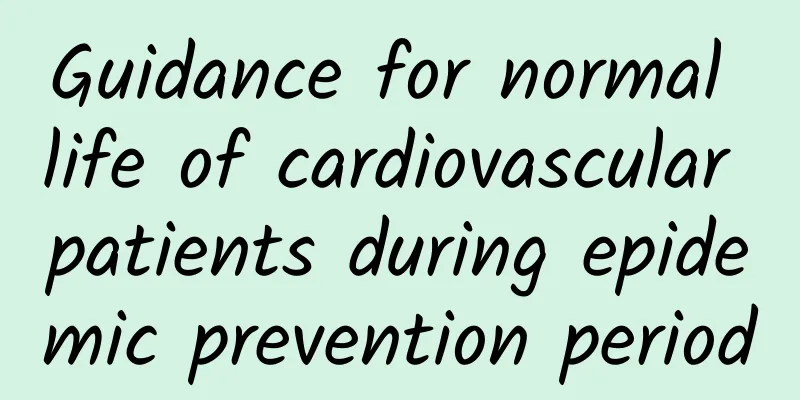Postmenopause

|
Menopause is a period of time that occurs when people reach middle age or old age. During this period, women's tempers will become extremely irritable, and they will age very quickly. Some people think that menopause is equivalent to menopause, which is a wrong view. Menopause refers to the cessation of menstruation and the lack of fertility, while menopause focuses more on psychological changes. These are two completely different concepts. Let's explain the difference in detail below. Menopause refers to the cessation of menstruation. In reality, many people believe that menopause refers to the menopausal period. In fact, these are two medical concepts with completely different meanings. Menopause refers to a period of transition in women from the beginning of the decline of gonadal function to its complete loss. There is a stage of gradual ovarian decline before menopause. According to surveys, it lasts about 2 to 4 years, and the length varies in different people. This is called premenopause. After menopause, ovarian function becomes even lower, but it does not necessarily disappear completely immediately. It usually takes 2 to 3 years, but sometimes it can last up to 6 to 8 years, or even longer. Therefore, menopause is the sum of premenopause, menopause and postmenopause, so some scholars call it "perimenopause". Psychoneural symptoms: Excitable type, irritable, easily agitated, insomnia, inattention, multi-talking, loud crying, etc. Depressive type, irritability, anxiety, inner uneasiness, memory loss, slow movement, low mood, etc. Vasomotor symptoms, hot flashes and flushes are characteristic symptoms of women entering perimenopause, and 82% of patients have this symptom for one year. Cardiovascular symptoms: 28.9% of patients have pseudo-angina, sometimes accompanied by palpitations, chest tightness, etc. The occurrence of symptoms is often affected by mental factors. In addition, about 15.2% of patients have mild hypertension, which is characterized by increased systolic blood pressure, not high diastolic blood pressure, paroxysmal attacks, dizziness, headache, chest tightness, and palpitations when blood pressure rises. Skin tension decreases, and it becomes dry and thinner. Mid-term menopausal syndrome (post-menopause): Atrophic urethritis may cause difficulty urinating, pain in the urethral opening, frequent urination, urgency, and incontinence (even leakage of urine when laughing, coughing, or sneezing), but no pyuria. Senile vaginitis: 30% of postmenopausal women will develop senile vaginitis, the main symptoms of which are increased leucorrhea, vulvar itching, and vaginal burning sensation. Uterine prolapse, bladder and rectal prolapse, accompanied by urinary retention, urinary incontinence, and difficulty in defecation. Late stage of menopausal syndrome: Postmenopausal osteoporosis Some patients may experience bone pain, joint pain or local tenderness, but no redness, swelling or heat. Vertebral, distal radius, and hip fractures may occur, as well as spinal deformity, shortening, and tooth loss. Cardiovascular disease, postmenopausal cardiovascular disease, atherosclerosis and coronary heart disease, their causes are partly related to postmenopausal estrogen deficiency. Atherosclerosis of the cerebral arteries and carotid arteries and an increased incidence of Alzheimer's disease. |
Recommend
What is the cause of the lump of flesh at the vaginal opening?
The lump of flesh at the vaginal opening is mainl...
AB blood type personality woman
AB type people are confident people full of diffe...
There is a small lump in my chest that moves, what's going on?
In daily life, most women care about whether thei...
Women's legs are not sore during the day but at night
Some people find their feet are very sore when th...
What are the benefits of swimming? Can I sweat after swimming?
When people swim, the water washes the skin, swea...
Can I do sit-ups during my period?
Girls start to menstruate when they enter puberty...
What are the tips for quickly curing vaginitis?
When female friends experience symptoms such as v...
Do I need to take anti-inflammatory injections after the uterine aspiration surgery?
Vascular abortion is a common method of abortion....
How to take medicine for cold during breastfeeding
Children are the apple of their mother's eye....
Picture of tinea cruris on the inner thigh of a woman
For many female friends, they often feel overly i...
What to do if the endometrium shows hyperplasia
Gynecological diseases are particularly harmful t...
What color is the uterine fluid discharged?
There are many reasons for uterine fluid accumula...
Major research: This new drug can effectively improve hypercholesterolemia and reduce the risk of cardiovascular disease
According to the World Health Organization, ather...
The safe period is a few days before the menstrual period
Generally speaking, girls have their periods ever...
Can I drink Red Bull when I'm pregnant?
Currently, Red Bull drinks on the market are adve...









